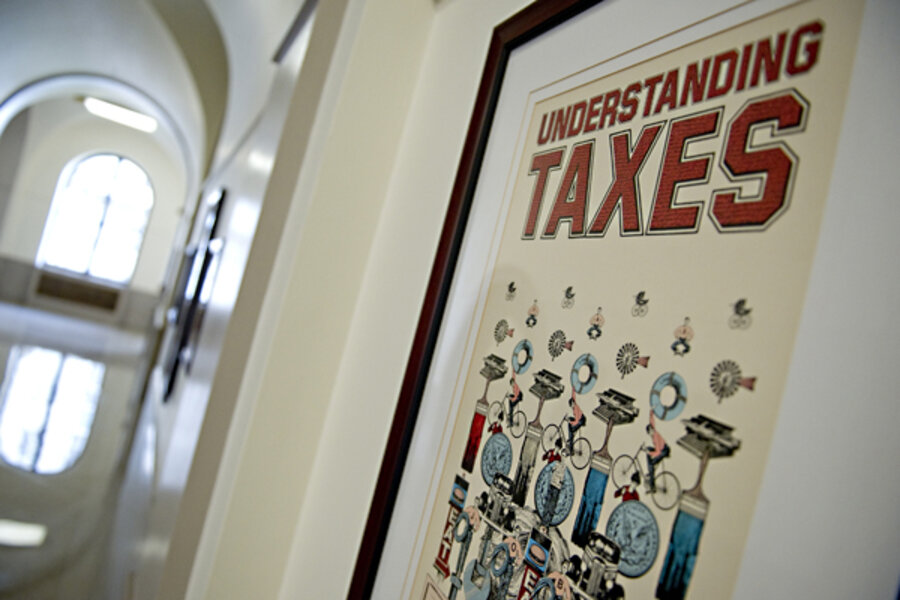Why broadening the tax base is so difficult
Loading...
The Congressional Research Service has released a new report by Jane Gravelle and Thomas Hungerford called “The Challenge of Individual Income Tax Reform: An Economic Analysis of Tax Base Broadening.” In a nutshell, the report could be called “Base Broadening Is Hard to Do.” The Washington Post’s Lori Montgomery summarized it nicely on Friday, including getting this Republican staffer’s reaction to it:
Republican tax aides dismissed the report as unhelpful.
“Reports suggesting tax reform isn’t easy are greatly appreciated. We look forward to future reports on water being wet,” said Sage Eastman, a senior aide to House Ways and Means Committee Chairman Dave Camp (R-Mich.), whose panel drafted the principles for tax reform laid out in the Ryan budget.
The CRS report emphasizes that although the 200+ tax expenditures under the federal income tax (individual and corporate) are worth over $1 trillion per year, the largest 20 of them represent 90 percent of that revenue loss. When you look closely at that “top 20″ list, copied here from the table in the CRS report, it is easy to get discouraged about the prospects for substantial tax base broadening. As I explained last November in Tax Notes (subscription-only access here), the largest tax expenditures look a lot more like “entitlements” than “loopholes”:
Consider the biggest of the big tax expenditures: the exclusion for employer-provided healthcare and itemized deductions. Economically, there is little rationale for subsidizing those particular activities, especially for handing out the largest subsidies to people with the highest incomes. But politically they are untouchable. They clearly benefit real people, not just individuals or corporations of questionable reputation, and they are far from “loopholes” that are easy to cut.
Those individual income tax expenditures sound a lot like entitlement spending, defined by Merriam-Webster’s Dictionary of Law as “a government program that provides benefits to members of a group that has a statutory entitlement.” Those groups are employees with health insurance, households with mortgages, people who donate to charities, and so on.
And that’s why the CRS authors conclude that “It appears unlikely that a significant fraction of this potential revenue could be realized.” Instead of the more than $1 trillion that could be gained if all tax expenditures were eliminated–which would support substantial marginal tax rate reductions including getting the top rate down from 39.6% to 23%–they believe “it may prove difficult to gain more than $100 billion to $150 billion in additional tax revenues through base broadening.”
I think I’m slightly more optimistic than CRS, because their conclusion assumes we can’t touch (at all) those top 20 tax expenditures. I think we could actually do better. For example, in his latest budget the President himself has proposed to touch (or hammer?) a lot of these tax expenditures by limiting the benefit of those tax expenditures to the richest households to the levels of benefits that would be obtained at lower marginal tax rate brackets. It’s an ambitious amount of base broadening, although only for a narrow group of taxpayers (the familiar households with incomes above $250,000). (The limit of the broadening to that small group results in a revenue gain of $584 billion over ten years–which is like broadening the tax base by about 1/20th the total value of tax expenditures.) But my point is there are ways to substantially reduce the cost of the most expensive tax expenditures to both make the proposals more palatable and to raise enough revenue to support a decent amount of rate reduction or at least “rate preservation.” It still isn’t easy to do, but that’s still mostly a political obstacle rather than an economic or administrative one.








